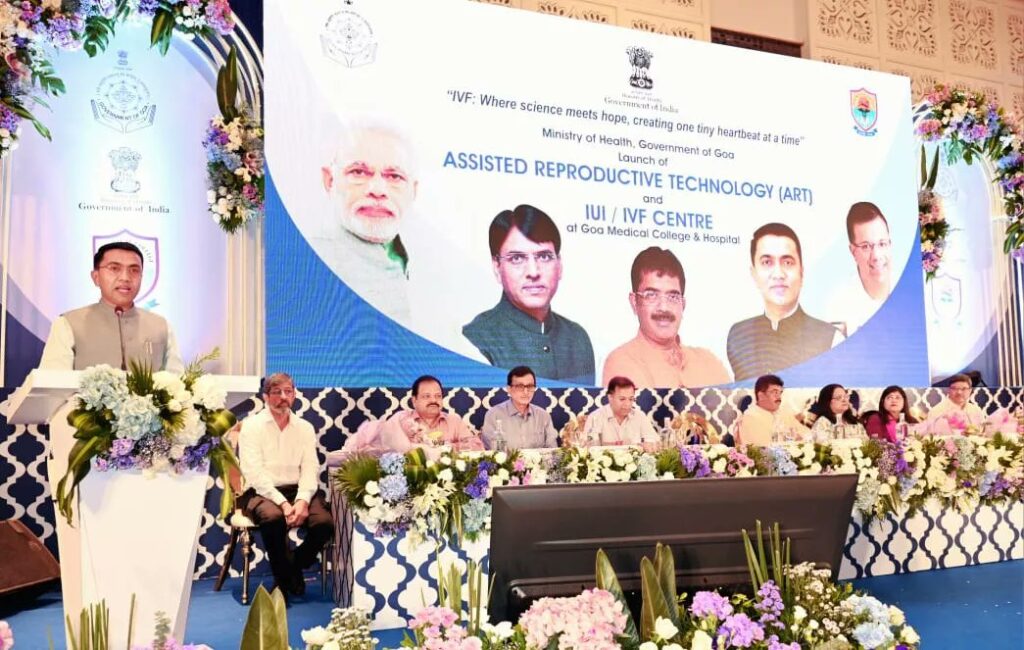In light of global health concerns surrounding Mpox, the Union Health Ministry has issued a comprehensive advisory to all states and union territories across India. Although the country has yet to report any confirmed cases of Mpox, the advisory serves as a preventive measure to ensure that India’s healthcare system is ready to handle any potential outbreaks.
The World Health Organization (WHO) declared Mpox a Public Health Emergency of International Concern, emphasizing the disease’s growing impact across the world. This global alert highlights the urgency for countries to remain vigilant, and India is no exception. The government is proactively encouraging states and territories to ramp up public health efforts and circulate the “Guidelines for Management of Monkeypox Disease” as part of a broader strategy to combat this threat.
What is Mpox?
Mpox, previously known as monkey pox, is a viral zoonotic disease that has been a health issue in parts of Africa for years but recently resurfaced as a global concern in 2022. The disease is primarily transmitted from animals to humans and can also spread from person to person. Although it is generally not as contagious or deadly as other viruses like COVID-19, it still poses a serious risk, especially with the potential for it to evolve and spread further.
Globally, Mpox primarily affects young males, with a median age of 34 years, and transmission is most commonly reported through sexual contact. However, non-sexual transmission has also been observed, making it imperative to take universal precautions. According to the most recent WHO report dated September 3, 2024, there have been 102,997 confirmed Mpox cases worldwide since January 2022, spanning 121 countries and resulting in 223 deaths. In July 2024 alone, 1,425 new cases and six deaths were recorded, with Africa, the Americas, and Europe being the most affected regions. Though South-East Asia has only accounted for 1% of the total cases, India’s Ministry of Health remains on high alert, given the rapidly changing nature of infectious diseases.
India’s Strategy for Mpox Prevention
India’s Ministry of Health has taken a proactive stance, releasing several directives to state and union territory health departments. The advisory calls for several key actions:
1. Public Circulation of Guidelines: The Ministry has urged all health authorities to ensure that the “Guidelines for Management of Monkey pox Disease” are widely circulated. This document provides comprehensive instructions on how to manage suspected and confirmed cases, preventing the spread of the virus.
2. Communicable Disease Alert (CD-Alert): The National Centre for Disease Control (NCDC) has issued an updated Communicable Disease Alert to further guide health departments in implementing precautionary measures. This alert acts as a national warning system to enhance disease surveillance and provide real-time updates on potential health threats.
3. Preparedness in Health Facilities: Health Secretary Rajesh Bhushan has emphasized the importance of public health preparedness at all levels, especially in health facilities. This includes the identification and allocation of isolation wards for suspected and confirmed Mpox cases to prevent the spread of the virus within hospital settings.
4. Senior Health Officials to Lead: Senior officials in every state and territory have been instructed to actively monitor the preparedness and ensure that health systems are ready to respond. This top-down approach allows for real-time assessments and rapid implementation of precautionary measures.
The Role of Contact Tracing
India’s advisory was prompted by a suspected Mpox case in Delhi, involving a man who had recently returned from abroad. The patient has been isolated, and health officials have initiated contact tracing to prevent further transmission. Contact tracing is one of the key public health strategies used to manage and control infectious diseases. By identifying individuals who have come into close contact with the patient, health authorities can take early steps to isolate and monitor these individuals, potentially curbing an outbreak before it starts.
The most common symptoms of Mpox include:
- Rashes, which can be either systemic or genital
- Fever
- Fatigue
- Swollen lymph nodes
Symptoms typically last for two to four weeks, and while many individuals recover without complications, those with underlying health conditions, particularly individuals living with HIV, are more vulnerable to severe outcomes.
According to global data, 50% of Mpox cases involve individuals who are HIV-positive, highlighting the need for specific interventions targeting this population. Additionally, the WHO has noted that Mpox tends to disproportionately affect men, although the reasons for this remain a topic of ongoing research.
Global Spread and India’s Role
While Mpox has been endemic in certain African regions for decades, its global resurgence in 2022 has led to the infection spreading to over 121 countries. Experts believe that increased travel, climate change, and closer interaction between humans and animals are among the factors contributing to this spread. Climate change, in particular, is disrupting natural habitats and forcing animals to migrate to areas closer to human populations, increasing the risk of zoonotic diseases—infections that are transmitted from animals to humans.
India, which has a population of over 1.4 billion, is particularly vulnerable to the spread of infectious diseases due to its high population density and global connectivity. The government’s rapid response to Mpox demonstrates a commitment to preventative public health measures. India’s extensive public health infrastructure, including a robust disease surveillance network, plays a crucial role in early detection and response to emerging health threats.
Ensuring Public Safety and Preparedness
One of the key messages from the Ministry of Health is that there is no need for undue concern. India is well-prepared to handle isolated Mpox cases, and there are robust measures in place to mitigate any potential spread. These include the capacity to quickly diagnose Mpox cases, allocate resources such as isolation wards, and provide specialized treatment for those infected.
The government’s approach also includes public awareness campaigns to inform the public about the importance of hygiene, prompt reporting of symptoms, and safe interactions with animals. Public health systems are being equipped to handle not just Mpox but also future zoonotic diseases that may emerge in the coming years.
The Global Health Outlook
The WHO’s classification of Mpox as a Public Health Emergency of International Concern highlights the need for international collaboration in addressing this disease. The global health community is closely monitoring the spread of Mpox, with ongoing research into vaccination and treatment options. While vaccines for smallpox have shown some efficacy against Mpox, more targeted research is needed to develop solutions that can prevent further transmission.
India’s commitment to public health preparedness serves as a model for other nations facing similar challenges. By taking early precautions, the country is better equipped to protect its population from Mpox and other infectious diseases that could emerge in the future.
In a world where new infectious diseases continue to pose threats to public health, India’s response to Mpox is a testament to the country’s ability to remain vigilant and prepared. Through proactive public health measures, such as the wide circulation of management guidelines, effective contact tracing, and healthcare system readiness, India is well-positioned to manage any potential Mpox cases and protect its citizens from this global threat.
By fostering collaboration between state and national health departments and enhancing public awareness, India can continue its successful track record in combating emerging infectious diseases. As the global community watches and learns, India’s response to Mpox offers valuable insights into how to prevent and contain zoonotic outbreaks.
.png)
 Through proactive public health measures, such as the wide circulation of management guidelines, effective contact tracing, and healthcare system readiness, India is well-positioned to manage any potential Mpox cases and protect its citizens from this global threat.
Through proactive public health measures, such as the wide circulation of management guidelines, effective contact tracing, and healthcare system readiness, India is well-positioned to manage any potential Mpox cases and protect its citizens from this global threat.




















.jpeg)

.jpeg)










.jpg)




.jpg)

